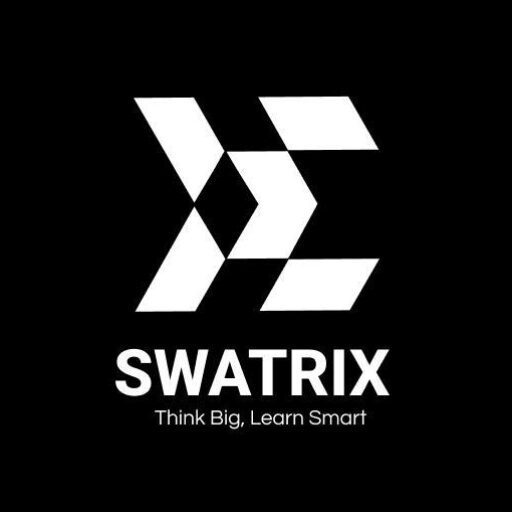Data Science
Data science is an interdisciplinary field that combines statistics, computer science, and domain knowledge to extract actionable insights and knowledge from data. It involves collecting, cleaning, and analyzing large and complex datasets to uncover patterns, trends, and relationships that can inform decision-making processes. Data scientists utilize a wide range of techniques such as statistical modeling, machine learning, and data visualization to extract valuable insights from raw data.
Reviews 4.7 (253 user ratings):
4.721 students
Price:
₹ 5000/-
Furthermore, data science plays a crucial role in various industries, including finance, healthcare, marketing, and technology. By leveraging advanced analytics techniques, organizations can optimize operations, improve customer experiences, and drive innovation. Data scientists are in high demand as they possess the skills to transform data into valuable insights that drive business growth and solve complex challenges.

Course Descriptions :
"Introduction to Data Science" provides an overview of the field, covering the fundamental concepts and techniques used to extract insights from data. Students learn about the data science workflow, including data collection, cleaning, analysis, and visualization. The course emphasizes the importance of statistical analysis, machine learning, and domain knowledge in solving complex problems and making informed decisions.
"Programming Foundations" introduces the fundamental concepts and principles of computer programming, laying the groundwork for understanding and writing code. It covers topics such as variables, data types, control structures, functions, and algorithms. By mastering these foundational concepts, learners develop the essential skills needed to create efficient and scalable software solutions.
"Data Collection and Cleaning" covers the essential steps in the data science workflow. Students learn how to gather data from various sources and ensure its quality by identifying and addressing errors, inconsistencies, and missing values. The course emphasizes the importance of meticulous pre-processing, including removing duplicates and outliers, to ensure that the data is accurate, complete, and suitable for analysis.
"Exploratory Data Analysis (EDA)" involves examining and visualizing data to identify patterns and insights. Students learn how to use statistical methods and visualization tools to gain a deeper understanding of the data's structure and relationships between variables. The course highlights the importance of EDA in uncovering trends, anomalies, and potential insights that guide further analysis and decision-making.
"Mathematics for Data Science" teaches essential mathematical concepts like linear algebra, calculus, probability, and statistics. These skills enable data scientists to analyze and interpret data effectively, develop advanced algorithms, and make accurate predictions. The course emphasizes the application of these mathematical principles in data science workflows.
"Data Pre-processing" involves cleaning and transforming raw data into a usable format for analysis. Students learn how to handle missing values, remove duplicates, and scale features. The course emphasizes the importance of meticulous data preparation to ensure that the data is accurate, consistent, and suitable for further analysis and modeling.
"Supervised Learning Techniques" covers the use of labeled data to train algorithms for predictions or classifications. Students learn about regression for continuous predictions and classification for categorical decisions. The course highlights the application of these techniques in various fields, such as finance for risk assessment and healthcare for customer segmentation.
"Unsupervised Learning Techniques" focuses on analysing unlabelled data to find patterns or structures without explicit guidance. Students learn about clustering and dimensionality reduction techniques that help uncover hidden insights in complex datasets. The course emphasizes the application of these techniques in fields such as customer segmentation and anomaly detection.
"Time Series Analysis" examines data points collected over sequential time intervals to identify patterns or trends. Students learn how to forecast future values and understand underlying patterns, which are crucial in fields such as finance for predicting stock prices and meteorology for weather forecasting.
"Text Analytics and NLP Basics" introduces the analysis and extraction of insights from textual data. Students learn about techniques like sentiment analysis, entity recognition, and text summarization. The course emphasizes the importance of these methods in applications such as customer feedback analysis and document categorization.
"Advanced Machine Learning Techniques" covers sophisticated algorithms and models that go beyond basic approaches. Students learn about deep learning, ensemble learning, and reinforcement learning, enabling them to tackle complex tasks such as image recognition, natural language processing, and autonomous decision-making.
"Data Visualization and Communication" focuses on presenting complex data in visual formats to convey insights effectively. Students learn how to create charts, graphs, and dashboards that make data understandable and actionable. The course emphasizes the importance of these techniques in decision-making processes across various domains, from business analytics to scientific research.
"Ethics, Bias, and Legal Considerations" addresses the responsible use of data, mitigating biases, and ensuring compliance with regulations. Students learn how to assess the ethical implications of data collection, processing, and decision-making. The course emphasizes the importance of upholding fairness, transparency, and privacy in data-driven practices.
"Projects" in data science involve applying learned skills to real-world problems, from data collection to analysis and interpretation. Students work on hands-on projects that require creativity and critical thinking to derive actionable insights and solutions. The course emphasizes the importance of these projects in providing valuable hands-on experience and demonstrating proficiency in data science techniques, enhancing career prospects in various industries.
This course includes:
- 30 hours on-demand video
- 6 months access
- Access on mobile and TV
- Free Webinar
- Certificate of completion
Student Testimonials for Data Science
- Best Conference
- 100% Certified & Trusted
- Enjoy 24/7 World Class Support
The Data Science course was incredible! I learned Python, Pandas, and how to analyze real datasets. The practical sessions really helped solidify my understanding.
